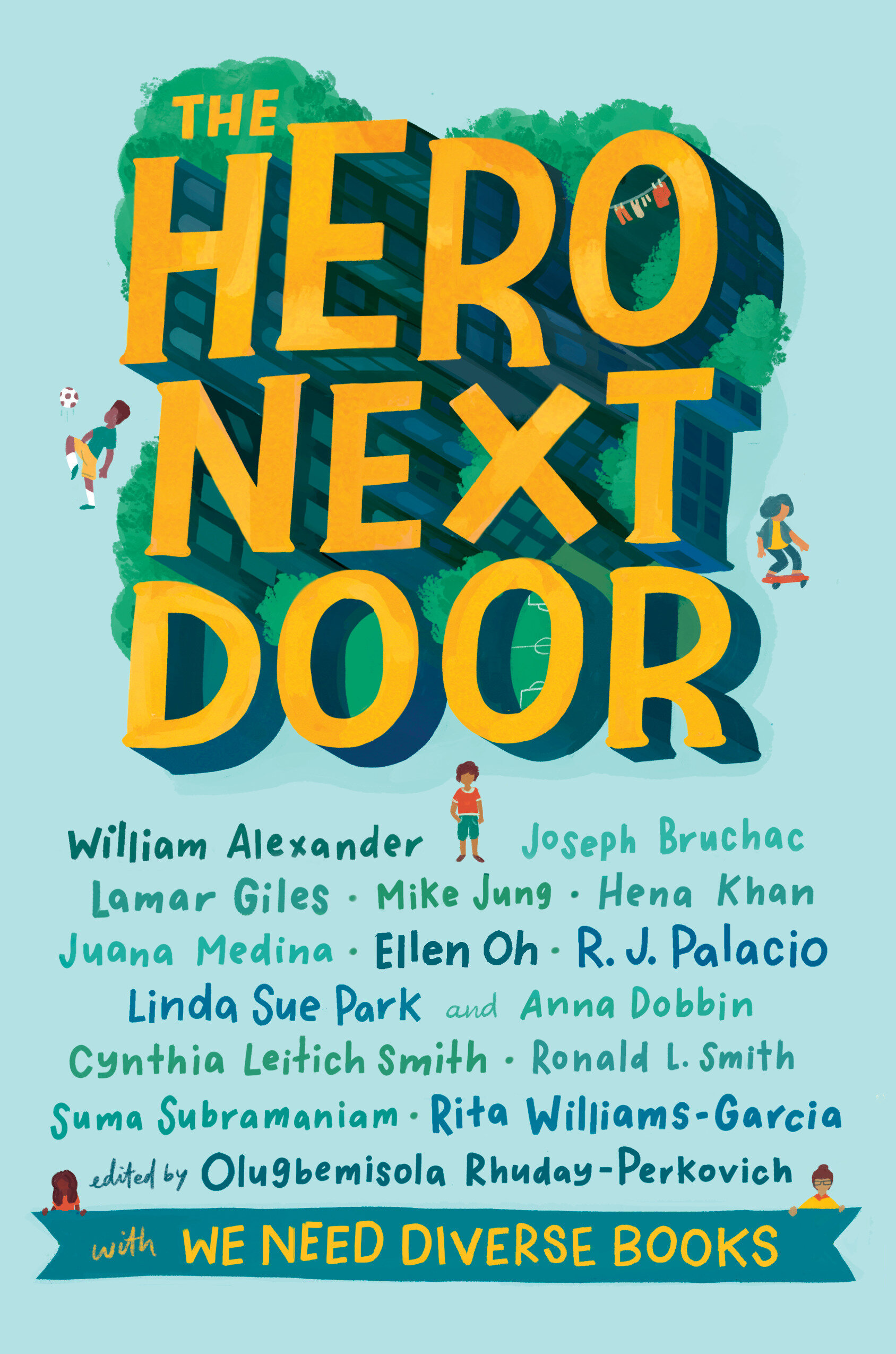"I'm not really who you think I am."
On the plane to Newfoundland I watched Captain Marvel. I'd missed it on the big screen and I must say it was quite wonderful seeing a woman taking charge of saving the world. "Buckle up, folks..."And Brie Larson came through for me, whether she was kick-boxing or coping with memory flashes. I even found myself being faintly nostalgic for the 1990s! It was nice to check out of reality for a while and sink into a world in which female power prevailed, where you could sort of hand over the problems to a really competent superhero and rest assured that all would be well.Of course, life isn't that simple, and more to the point, the real heroes aren't from some other galaxy. They're right here among us. This is the point of the recent We Need Diverse Books story collection edited by Olugbemisola Rhuday-Perkovich, The Hero Next Door. VCFA graduate Suma Subramaniam's story, "Rescue" won the WNDB short story contest and is included in the book, which is a wonderful collection of stories about all kinds of heroes in worlds real and fantastic. Interestingly, in each of the stories, something is revealed about the character of the hero, and sometimes heroism can be seen in more than one person, so the quote from Captain Marvel seems apt: "I'm not really who you think I am."I asked Suma a few questions about her story: [Uma] What resonated for you in the anthology theme of everyday heroes?[Suma] This theme resonated for me as conflicts and universal challenges unfold across all families regardless of culture. In tough times, ordinary people step in to help and we see great acts of humanity. Some of these people are not necessarily famous, but they do great things when no one’s noticing them – sometimes at a significant personal cost. I have been helped by many such people and pets in my childhood and adult life. My story in The Hero Next Door is written in honor of those people (and pets).[Uma] Talk about the intersection of family conflict and the role of the dog in your story. Where did that combination come from for you?
[Uma] What resonated for you in the anthology theme of everyday heroes?[Suma] This theme resonated for me as conflicts and universal challenges unfold across all families regardless of culture. In tough times, ordinary people step in to help and we see great acts of humanity. Some of these people are not necessarily famous, but they do great things when no one’s noticing them – sometimes at a significant personal cost. I have been helped by many such people and pets in my childhood and adult life. My story in The Hero Next Door is written in honor of those people (and pets).[Uma] Talk about the intersection of family conflict and the role of the dog in your story. Where did that combination come from for you? [Suma] The inspiration for "Rescue" came from a couple of stories and news articles I had read about domestic abuse. When I researched the subject, I found very little information on how children navigated family separation and domestic abuse in South Asian families. I knew instantly that I had to write a story about it as seen through the eyes of a child. The idea of having a dog in the story came naturally as I could not imagine Sangeetha’s life without a four-legged friend. Children often feel their whole world has turned upside down when they’re facing separation and domestic abuse. Having lived with several dogs over the years, I have found that dogs bring joy in families and offer a healing path in the gentlest ways. When I immigrated to the United States more than a decade ago, my dog helped me feel less lonely. Dogs have a way of being patient, compassionate, trustworthy, and kind. They teach us valuable life lessons in the short course of their lifetimes that can help children in more ways than one. Sangeetha, therefore, had to have a dog who would be that special friend.[Uma] Every piece of writing teaches the writer something. What did writing this story teach you?[Suma] Writing this story taught me to get comfortable with being uncomfortable. I wrote Rescue to practice writing short fiction without the ultimate goal of publication in mind. Putting out the finished product into the ether led Rescue to the right hands – to people who got the heart of Sangeetha’s story and were excited about championing it.And I am so glad that happened, Suma. Good luck!The Hero Next Door includes stories by William Alexander, Joseph Bruchac, Lamar Giles, Mike Jung, Hena Khan, Juana Medina, Ellen Oh, R.J. Palacio, Linda Sue Park and Anna Dobbin, Cynthia Leitich Smith, Ronald L. Smith, Suma Subramaniam, and Rita Williams-Garcia.
[Suma] The inspiration for "Rescue" came from a couple of stories and news articles I had read about domestic abuse. When I researched the subject, I found very little information on how children navigated family separation and domestic abuse in South Asian families. I knew instantly that I had to write a story about it as seen through the eyes of a child. The idea of having a dog in the story came naturally as I could not imagine Sangeetha’s life without a four-legged friend. Children often feel their whole world has turned upside down when they’re facing separation and domestic abuse. Having lived with several dogs over the years, I have found that dogs bring joy in families and offer a healing path in the gentlest ways. When I immigrated to the United States more than a decade ago, my dog helped me feel less lonely. Dogs have a way of being patient, compassionate, trustworthy, and kind. They teach us valuable life lessons in the short course of their lifetimes that can help children in more ways than one. Sangeetha, therefore, had to have a dog who would be that special friend.[Uma] Every piece of writing teaches the writer something. What did writing this story teach you?[Suma] Writing this story taught me to get comfortable with being uncomfortable. I wrote Rescue to practice writing short fiction without the ultimate goal of publication in mind. Putting out the finished product into the ether led Rescue to the right hands – to people who got the heart of Sangeetha’s story and were excited about championing it.And I am so glad that happened, Suma. Good luck!The Hero Next Door includes stories by William Alexander, Joseph Bruchac, Lamar Giles, Mike Jung, Hena Khan, Juana Medina, Ellen Oh, R.J. Palacio, Linda Sue Park and Anna Dobbin, Cynthia Leitich Smith, Ronald L. Smith, Suma Subramaniam, and Rita Williams-Garcia.